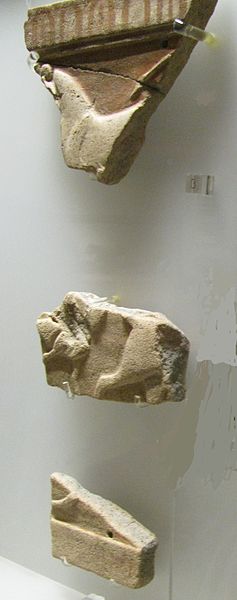A lictor was a Roman civil servant who was an attendant and bodyguard to a magistrate who held imperium. Roman records describe lictors as having existed since the Roman Kingdom, and may have originated with the Etruscans.
Gold coin from Dacia, minted by Coson, depicting a consul and two lictors
Relief of a lictor holding the fasces, from the Museo Archeologico al Teatro Romano, Verona
Head of Libertas on a denarius issued by Brutus, one of the assassins of Caesar, and on the reverse a consul flanked by two lictors
The Roman Kingdom, also referred to as the Roman monarchy or the regal period of ancient Rome, was the earliest period of Roman history when the city and its territory were ruled by kings. According to tradition, the Roman Kingdom began with the city's founding c. 753 BC, with settlements around the Palatine Hill along the river Tiber in central Italy, and ended with the overthrow of the kings and the establishment of the Republic c. 509 BC.
The ancient quarters of Rome
Shards of terracotta decorative plaques, 6th century BC (Roman Kingdom and Etruscan period), found in the Roman Forum, now in the Diocletian Baths Museum, Rome
Growth of the city region during the kingdom
Ancus Marcius depicted on a 57 BC denarius






